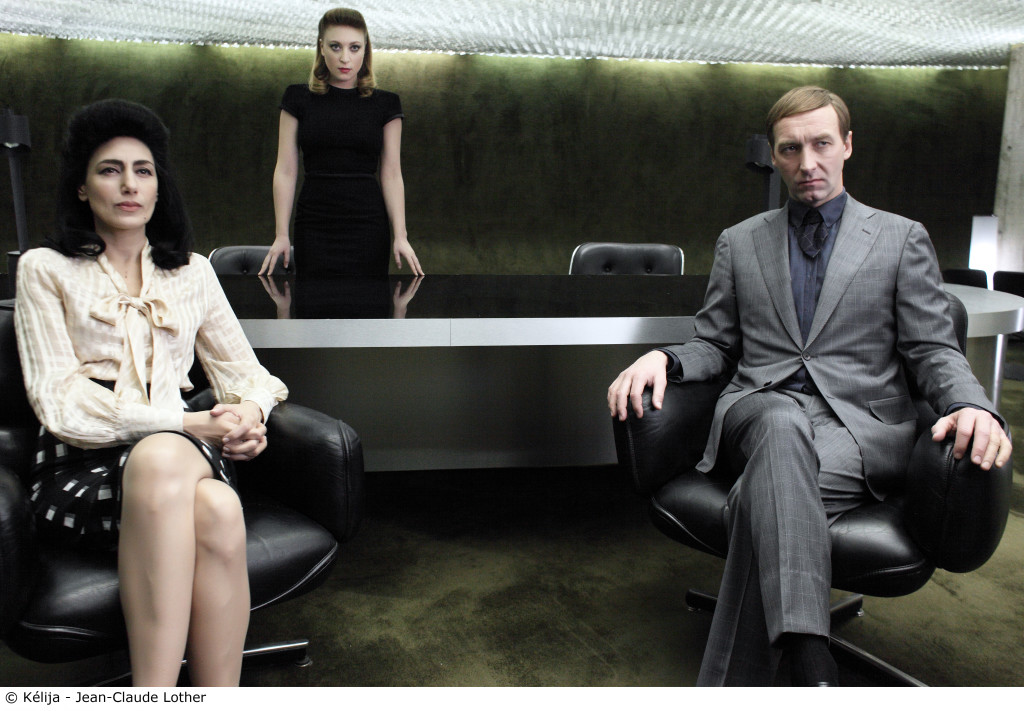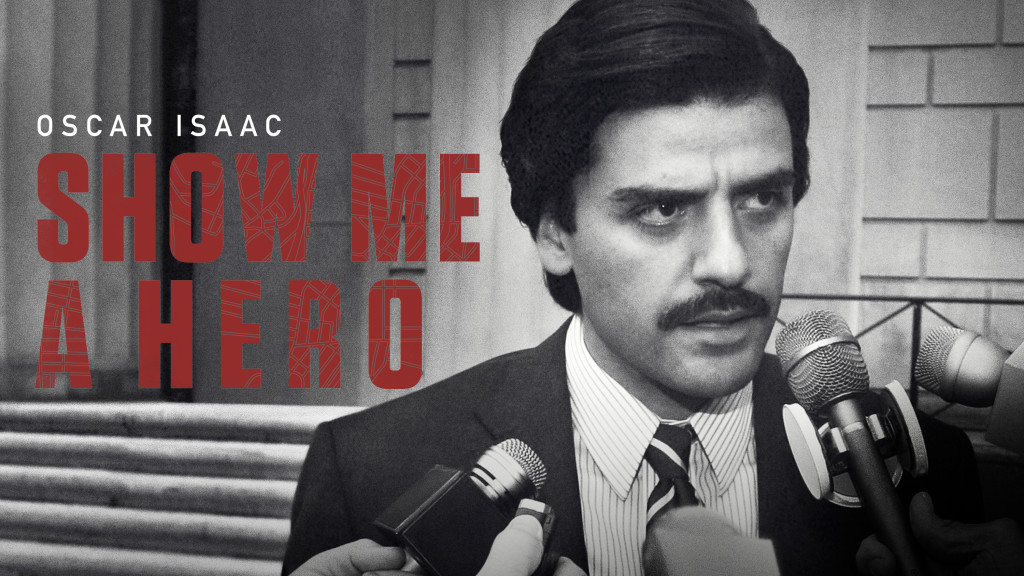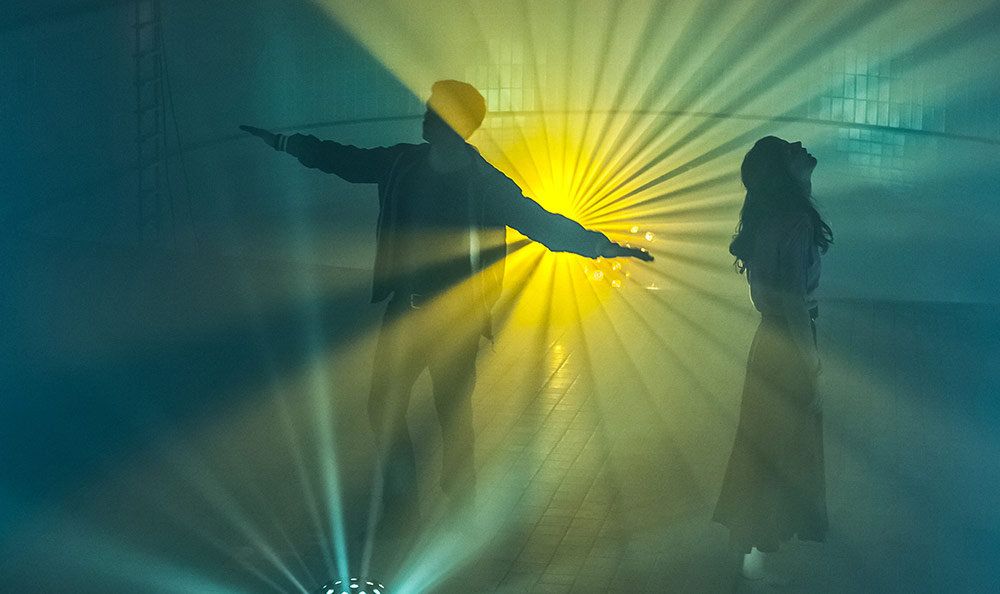Vera Viselli
The 9th edition of Rome Fiction Fest comes back to Cinema Adriano and as International Contest with 12 titles listed (Capital, Deutschland83, Glitch, Glue, O Hipnotizador, Limbo, The Man In The High Castle, Mr. Robot, Occupied, Trapped, Trepalium, Trial Of Chunhyang: A Girl Prosecuted By Feudalism). Also, 9 titles presented in the Out of competition section (Lea, 10% Call My Agent!, Buddha: King Of Kings, Fear The Walking Dead, King For A Term, The Last Panthers, Il Sistema, Versailles, Wicked City); 15 series presented in the Serial Crime section (Acquitted, Bad Guys, Candice Renoir, Entre Canibales, Follow The Money, Limitless, Mar De Plastico, Norskov, The Principal, Quantico, Refugiados, Señorita Pólvora, Swartwater, Wataha, Westside); 5 series in Serial Drama (The Book Of Negroes, Jekyll & Hyde, Lady Chatterley’s Lover, Magnifica 70, Wolf Hall) and then 2 in the Tv on Stage section, 24 in Kids & Teens, 5 in Young Adult Special, plus 6 Masterclasses and 2 Retrospectives (Fantastica Rai and Omaggio a Sergio Sollima: Sandokan, la Reunion).

So, Rome Fiction Fest wants to become more like a Festival than a kind of event like the Comic-Con International of San Diego, with a press and audience schedule, several special events (a positive feedback from the audience for 10 Stagioni di Un Medico In Famiglia – La Reunion but also in general with a turnout increased of the 20% from the previous edition) and the official awards. About the awards: the jury – chaired by Steven Van Zandt (Little Steven) and composed by Geppi Cucciari, Giancarlo De Cataldo, Stefano Disegni, Gloria Satta, Maureen Van Zandt – awarded The Man In The High Castle (USA, 2015, Frank Spotnitz – who has also run a Masterclass) as Best new TV Series/Limited Series/TV Movies. It’s the screen adaptation of Philip K. Dick’s famous novel¹, set in a historical sci-fi scenery: the World War II has been won by the Japanese and the Germans who now control the USA territory. San Francisco, 1962, four characters’ lives come across: in the original Dick’s plot the historical truth is collected in a censured hard to find book, in the series (Ridley Scott among the producer) the truth is hold by the images, through the safeguard of a video which offers the real vision of things: Hitler defeated and the world axis overturned. The visual form and direction elegance is also in the mix of genres (drama, political, action) offering a project about the politic of knowledge and the (visual) information: the reality is given back through a film, so knowledge comes through the vision – and that was the original meaning of Cinema: the documentary reality – and its sharing. When Amazon announced the pilot, the first huge question was about the feedback anxiety, since Dick’s novel is a very complex structure, but the series is almost on the same level of the literary work².
Another special awarded has been Deutschland83 (Germany, 2014, created by Anna Winger e Joerg Winger), an 80’s style spy-thriller which narrates the life of a 20 year old guy from East Germany forced to substitute for a soldier of the West Germany army and to work as a spy. The show is linked to the more ambitious The Americans³ (Usa, 2013, created by Joe Weisberg), a deep story about Russian secret intelligence that structures around a love story conditioned but not less real than others. The German series doesn’t go so deep but it’s a well-defined thriller, also with some aesthetic inspirations from Mad Men (The New Yorker).
Mr. Robot (USA, 2015, created by Sam Esmail), has been awarded by a young jury as Best TV Series “Young”. It’s a crime-drama (which received the Edward Snowden’s endorsement): the main character is Elliot, a young hacker who leads a group of insurrection-anarchist hackers to boycott a huge company. Serial creator said the plot takes roots from the Arab Spring: he is Egyptian and went to Egypt right after the insurrection event; he was impressed by the juvenile anger that fired up in just a little time. An anger against society, an outburst that canalized especially through new technologies (not available for the previous generation) and social medias, tools which could have helped to reach an effective change. The Arab Spring combined with a trick actually done by Esmail when he attended college: he faked a college official email contents – and got a monitoring punishment after it. So, Elliot is just like Esmail: if he would have attended college, he could have had the same nonconformist attitude, his bedroom walls covered with Fight Club, Arancia meccanica, Taxi driver, American psycho posters. An anti-hero – a topos loved in Cinema and Literature – that resembles Rust Cohle of True detective‘s first season (more a pessimist than an anarchist, sure, but we can find something in his perception that is close to the Angry Young Man – as defined by David Haglund – a disillusion which makes him to assert «human consciousness is a misstep in evolution»).
Beyond the awarded, the best discover is Trepalium (France, 2015, created by Antarès Bassis e Sophie Hiet): end of XXI century, the society agonizing after a terrible economical condition where only the 20% of the worldwide population is employed. The Employed live enclosed in the urban center, terrified to lose their job; the Unemployed – hungry, thirsty, abandoned – live on the margins, in the suburbs, the Zone. Two opposing territories, in a dehumanized society, separated by a fortify wall (it brings to mind the sadly famous German wall), two faces of the same affliction: the job and its absence. Trepalium is not just a mirror of the contemporary society: it’s what we could become in a close future. It deals with the economic and employment crisis, the increasing of violence and the lack of moral qualities, the racism and the political centralizing – and it does it better than every other audiovisual project, winking to Orphan black (from where it borrows the cloning theme, here feminine too).
A special mentioning for three titles: The Book Of Negroes, Show Me a Hero and Trapped. The first (Canada e South Africa, 2015, written by Lawrence Hill e Clement Virgo) is a miniseries based on Lawrence Hill’s best-seller novel Someone Knows My Name. A universal story of loss, courage and triumph which tells the trip of Aminata Diallo, a fearless African woman who survives in a world where everything is against her.
Show Me A Hero<sup>4</sup>(USA, 2015, written by David Simon<sup>5</sup> and Bill Zorzi, directed by Paul Haggis – who also took part in a Masterclass) is a miniseries based on Lisa Belkin’s namesake book, it explores topics like home, race, community through the life of citizens, activists and functionaries of Yonkers, in New York. In a kind of America so far from the 60’s fights for civil rights and suddenly thrown in the 80’s, Nick Wasicskko, the young mayor, finds himself forced to apply a federal sentence which sets to build up council houses for black people inside the white people residential zones. Six episodes to bring a strong message, a pragmatic but dramatic and authentic content (as Springsteen’s songs highlight) exactly how the main character is: a realist dreamer, full of civic idealism. In an epoch of sociopaths and conspiracy plots, Show Me a Hero is a fresh return to the past and shows the echo of some gritty old series – now forgotten – as East Side/West Side (USA, 1963-1964, created by Robert Alan Arthur).
Last but not least, Trapped (Iceland, 2015, created by Baltasar Kormákur): in a small town taken hostage by the snow, in an Iceland fiord, a mutilated body is discovered. The killer is still in town and probably is trapped there because of a storm – together with the other inhabitants. Andri, local police chief, wants to solve the case before the storm ends and so the killer would have the chance to escape. A cold and ghastly crime-drama that wraps the spectator with the devastating snow wildness and the beautiful landscape of Iceland.
<sup>1</sup> Man In The High Castle, published in 1962 and winner of the Hugo Award as Best novel.
<sup>2</sup> About adaptations and connections between novels and Cinema, see André Bazin, What is cinema? Vol. 1 & 2, Berkeley: University of California Press
<sup>3</sup> The opening of Deutschland83 is about Ronald Reagan’s evil empire speech, something that we also find in The Americans.
<sup>4</sup> The title comes from F. Scott Fitzgerald: “Show me a hero and I’ll write you a tragedy“.
<sup>5</sup> Wire‘s creator (Usa, 2002 – 2008)

Cover: Martin Rauch, Moritz Stamm, Linda Seiler, Deutschland 83







